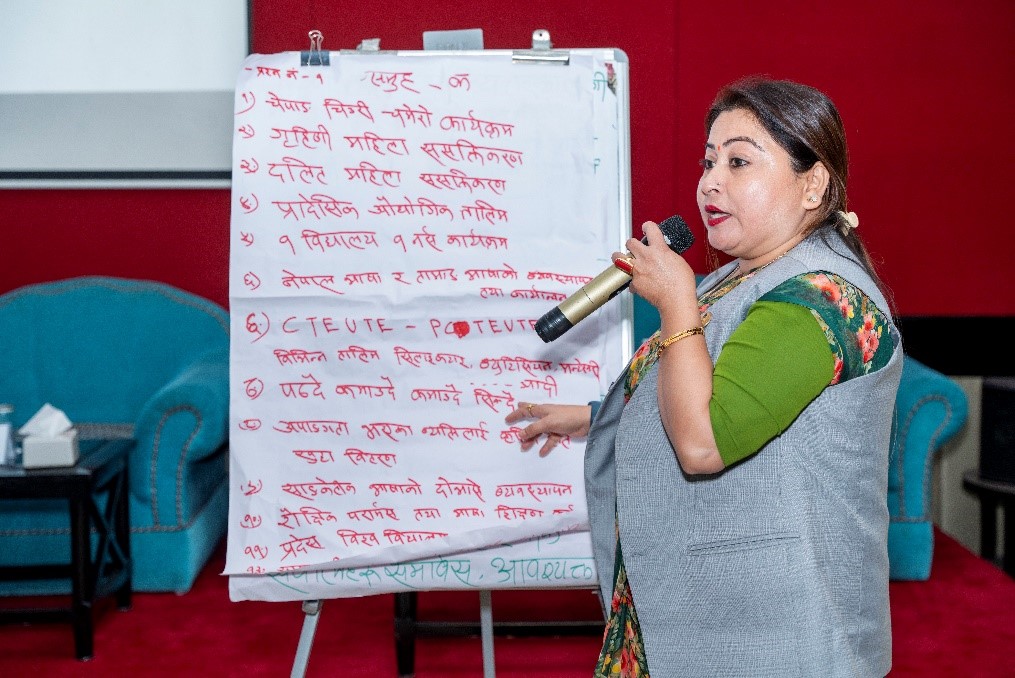Empowering Women Parliamentarians in Bagmati Province for Inclusive Governance through GESI Training
Capacity of women parliamentarians of Bagmati Province to apply Gender Equality and Social Inclusion (GESI) principles in planning, budgeting, and legislative processes was enhanced through a one-day training organized by Provincial Center for Good Governance (PCGG). The training aimed to empower women leaders to champion inclusive governance and promote effective utilization of gender-responsive budgeting mechanisms.
Participants:
The event brought together a total of twenty-three women parliamentarians from Bagmati Province.
Highlights:
The formal inauguration session was graced by the Honorable Chief Minister Mr. Bahadur Singh Lama Tamang, Hon’ble Speaker Mr. Bhuwam Kumar Pathak, Deputy Speaker Ms. Apsara Chhapagai, and Executive Director of PCGG Mr. Gopal Krishna Neupane.
Chief Minister Lama emphasized Nepal’s constitutional commitment to equality and social inclusion and urged women leaders to monitor provincial programs through a GESI lens. He encouraged them to raise any issues of non-compliance with constitutional GESI provisions in the assembly and with concerned ministries.
Speaker Pathak appreciated PCGG and PLGSP for scheduling the training during the provincial assembly's policy and budget discussions. He emphasized the need to address both inclusion and economic empowerment, while the Deputy Speaker highlighted the value of such capacity-building efforts in shaping more inclusive policies.
The training included three technical sessions:
- Gender Equality and Social Inclusion: Concept, Legal Framework, and Implementation Status was facilitated by former Secretary Ms. Yam Kumari Khatiwada, who explained Nepal’s progress and challenges in GESI implementation.
- Inclusive Planning and Budgeting with Gender Responsive Budgeting (GRB) Strategies was led by GESI expert Ms. Chhaya Jha, who provided practical insights on GRB coding, tools, and strategies to support inclusive planning.
- Legal Provisions for Inclusion in Development was conducted by Joint Secretary Mr. Hum Bahadur KC, who discussed Nepal’s legal instruments for inclusive development and provided guidance on forming inclusive committees and drafting inclusive provisions.
The training used participatory methods including mini-lectures, group work, presentations, and open discussions to encourage interactive learning.
Next Steps and Contribution to PLGSP’s Goal:
This training significantly strengthened the knowledge and skills of women parliamentarians to influence upcoming provincial budget and policy discussions with a strong GESI perspective. The participants are now better equipped to advocate for inclusive planning, budgeting, and legal reforms within provincial processes. This initiative aligns with PLGSP’s goal of strengthening inclusive and accountable provincial and local governance.

